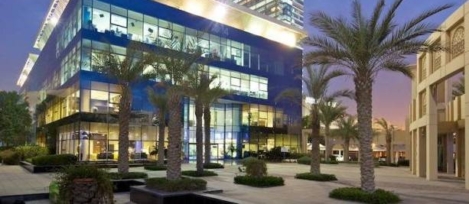September 14, 2016
Calls to improve London’s transport infrastructure in Brexit negotiations 0
London’s property sector has been resilient following the EU referendum, with commercial property rents remaining strong over the summer, though over the next few months the overall direction of the market is likely to become clearer. This is according to the latest CBI/CBRE London Business Survey, which has found that businesses want the city’s mayor to play a leading role in influencing Brexit negotiations, particularly in driving improvements to the city’s transport infrastructure. Two thirds (67 percent) wish to see upgrades to the existing London Underground network, whilst over a half (55 percent) want a commitment from City Hall to start building Crossrail 2 and one third (31 percent) hope for greater investment in the capital’s road network. Unsurprisingly, uncertainty over the UK’s role in the EU is the most significant cause for concern (75 percent of firms), followed by retaining the best people for the job (49 percent) and a lack of appropriately skilled staff (44 percent).


















 The UK commercial property sector is now larger than at any time since before the last recession, claims a new analysis from the Investment Property Forum. It has risen nearly 50 percent since its lowest point in 2009 and is now valued at £871 billion, an increase of around 11 percent. The amount of stock actually shrank last year, according to the study, with the increase in overall value arising from price rises. The previous highest valuation the IPF puts on the market was £865 billion in 2006. All is not good news however as a second report from the same organisation which explores sentiment in the market following the Brexit vote confirms there is a great deal of uncertainty in the market. This is particularly acute in the London market which makes up over a third of the nation’s total and is increasingly dominated by foreign owners who may have a negative response to the UK’s vote to leave the EU. Intriguingly, the report found that total floorspace marginally declined over 2015 and has only increased by 0.9 percent since the market high of 2006.
The UK commercial property sector is now larger than at any time since before the last recession, claims a new analysis from the Investment Property Forum. It has risen nearly 50 percent since its lowest point in 2009 and is now valued at £871 billion, an increase of around 11 percent. The amount of stock actually shrank last year, according to the study, with the increase in overall value arising from price rises. The previous highest valuation the IPF puts on the market was £865 billion in 2006. All is not good news however as a second report from the same organisation which explores sentiment in the market following the Brexit vote confirms there is a great deal of uncertainty in the market. This is particularly acute in the London market which makes up over a third of the nation’s total and is increasingly dominated by foreign owners who may have a negative response to the UK’s vote to leave the EU. Intriguingly, the report found that total floorspace marginally declined over 2015 and has only increased by 0.9 percent since the market high of 2006.
 The changing energy demands of British cities are revealed in
The changing energy demands of British cities are revealed in 


 Global law firm Osborne Clarke has released its fourth
Global law firm Osborne Clarke has released its fourth 
 In a new report
In a new report 








September 5, 2016
We’re only just beginning to understand the issue of indoor air quality 0
by Paul McLaughlin • Cities, Comment, Facilities management, Wellbeing
(more…)